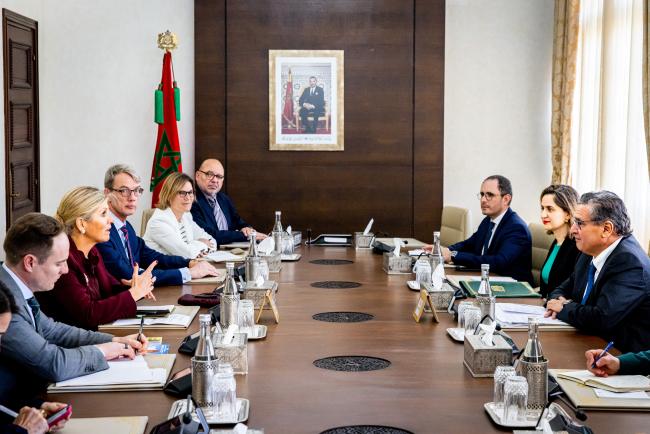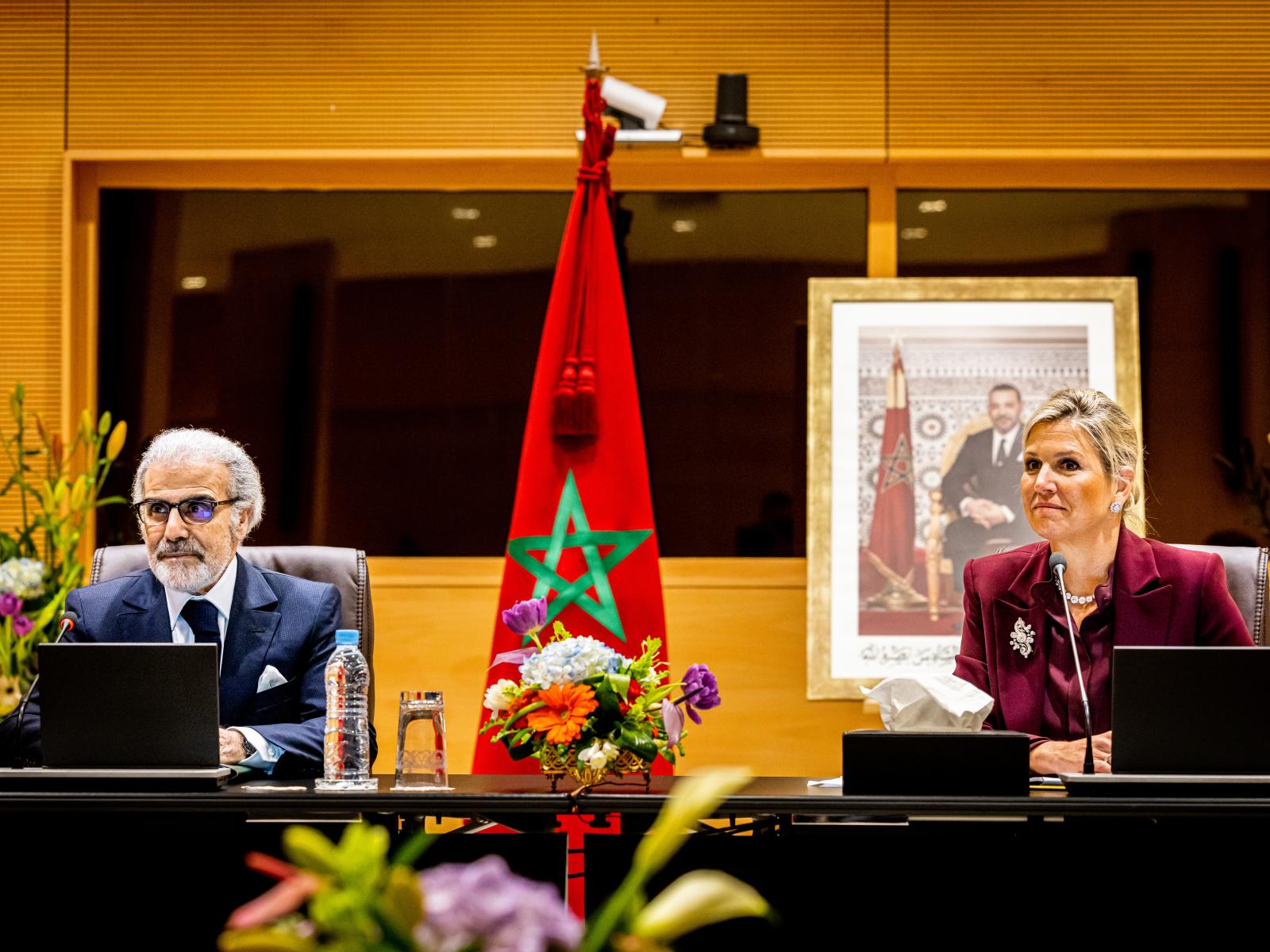
Morocco’s investment in financial inclusion over the last decade is paying off. The country has experienced double-digit growth in account ownership since 2017, making it one of only four countries worldwide to achieve this feat. According to the World Bank Global Findex (2021), 44% of adults in Morocco now have access to the formal financial sector, up from just 29% in 2017. The country's longstanding efforts to enact reforms to improve the enabling environment for financial inclusion has contributed to this upward trajectory.
The National Financial Inclusion Strategy (NFIS), launched by Morocco's Bank Al-Maghrib (the central bank) and Ministry of Economy and Finance in 2018, has set ambitious targets to further enhance the country's financial inclusion rate. The NFIS aims to achieve a financial inclusion rate of 50% by 2023 and 75% by 2030, underscoring Morocco's commitment to building a more inclusive financial system.
Despite progress, 15 million Moroccan adults remain unbanked, with women and rural communities facing significant barriers to financial access. In 2021, according to the Global Findex, while 56% of men held accounts, only 33% of women did—leaving a gender gap of 23 percentage points. This gap has remained nearly unchanged since 2017, when 41% of men and 17% of women had accounts. Moreover, just 6% of adults in Morocco report owning a mobile money account, highlighting the need for further efforts to promote digital financial services and address gender disparities in financial inclusion.
H.M. Queen Máxima of the Netherlands, in her capacity as the United Nations Secretary-General's Special Advocate for Inclusive Finance for Development (UNSGSA), visited Morocco on 20-23 March 2023. The trip was a chance for the UNSGSA to discuss the importance of financial inclusion in the country and to identify opportunities for progress. During her stay, Queen Máxima had fruitful discussions with key government officials, international development partners, and private sector stakeholders.
The Special Advocate held meetings with Head of Government Aziz Akhannouch, Secretary-General of the Government Mohamed El Hajoui, Economy and Finance Minister Nadia Fettah Alaoui, Industry and Trade Minister Ryad Mezzour, Delegate-Minister to the Head of Government in charge of Digital Transition and Administration Reform Ghita Mezzour, Bank Al-Maghrib Governor Abdellatif Jouahri, and Moroccan Capital Market Authority President Nezha Hayat.
The Special Advocate also embarked on a pair of field visits, traversing between Casablanca and Rabat, to engage with local financial service providers and customers to gain insight into how financial services can lead to positive outcomes in their lives. The UNSGSA met with Chari, a fintech startup facilitating e-commerce and digital financial services solutions to over 25,000 mom-and-pop stores across Morocco, as well as local entrepreneurs active in the food services and handicrafts sectors.
Learn more: Client Stories
- Moroccan Start-Up Chari Facilitating Digital Transformation and Financial Inclusion for Mom-and-Pop Shop Owners
- Microcredit, Microinsurance Help Female-Owned Bakery Business Cook up Sweet Treats in Morocco
UNSGSA Key Priorities
In her meetings with Head of Government Akhannouch and others, the Special Advocate focused on three key priorities.
1. Digital Payments as an Entry Point for Inclusive Finance
Morocco's push towards greater financial inclusion could be facilitated by digital payments, which offer an entry point to the formal financial system. Today, digital payment use cases are limited and cash remains dominant, with only 34% of small merchants aware of mobile payments and 79% using cash for client transactions. While digital payments could help address gender inequalities, only 6% of Moroccans have mobile wallets. Most mobile money users also have bank accounts.
To boost electronic payments, Morocco could benefit from use cases to drive demand for mobile wallets, more customized products, and greater merchant acceptance. Next steps discussed include digitizing all government-to-person and person-to-government payments, as well as setting up a national payments council to systematically digitize payment flows and coordinate this agenda across the public and private sectors.
2. Fintech can Help Financial Inclusion Flourish
As of 2020, Morocco has become the third largest fintech hub in the Arab world, with 40 fintech solutions, according to the Consultative Group to Assist the Poor (CGAP). A supportive regulatory environment is crucial for the growth of the fintech sector, which includes a more comprehensive oversight approach and a move toward a test-and-learn/sandbox approach that allows for greater regulatory evolution. Additionally, the UNSGSA and Governor Jouahri discussed how Morocco could benefit from open finance arrangements, as well as banks, telcos, and fintechs sharing data and APIs, over the medium-term.
3. Inclusive Green Finance (IGF) is Growing in Importance
Morocco is ahead of the curve when it comes to financial policies that tackle climate change. In 2016, the country created a roadmap to align its financial sector with sustainable development, and in 2021, the central bank issued regulations requiring credit institutions to identify, manage, and monitor climate-related risks. Morocco is now in a strong position to integrate financial inclusion as a key pillar of its climate finance strategy, with an emphasis on helping households and small businesses become more resilient to climate-related challenges.
Queen Máxima suggested to leaders that IGF could be included as a key pillar in the country’s next NFIS. She also mentioned it would be helpful to work with technical partners to scale IGF products and use cases, for example weather index insurance solutions for smallholder farmers.
UNSGSA Partners
Alliance for Financial Inclusion (AFI), Consultative Group to Assist the Poor (CGAP), and the World Bank Group.
